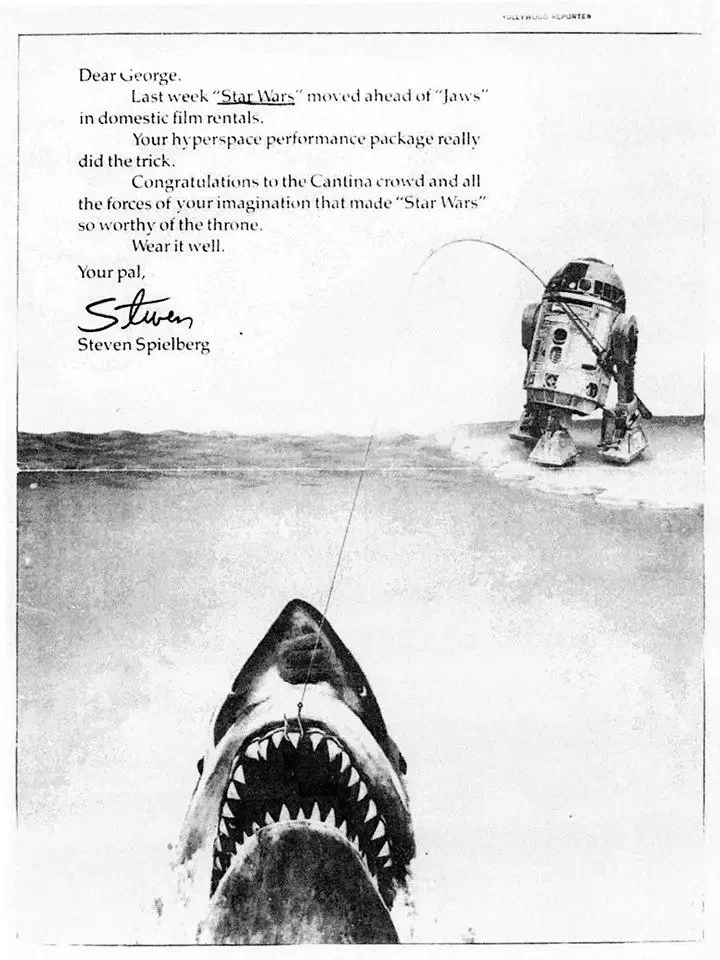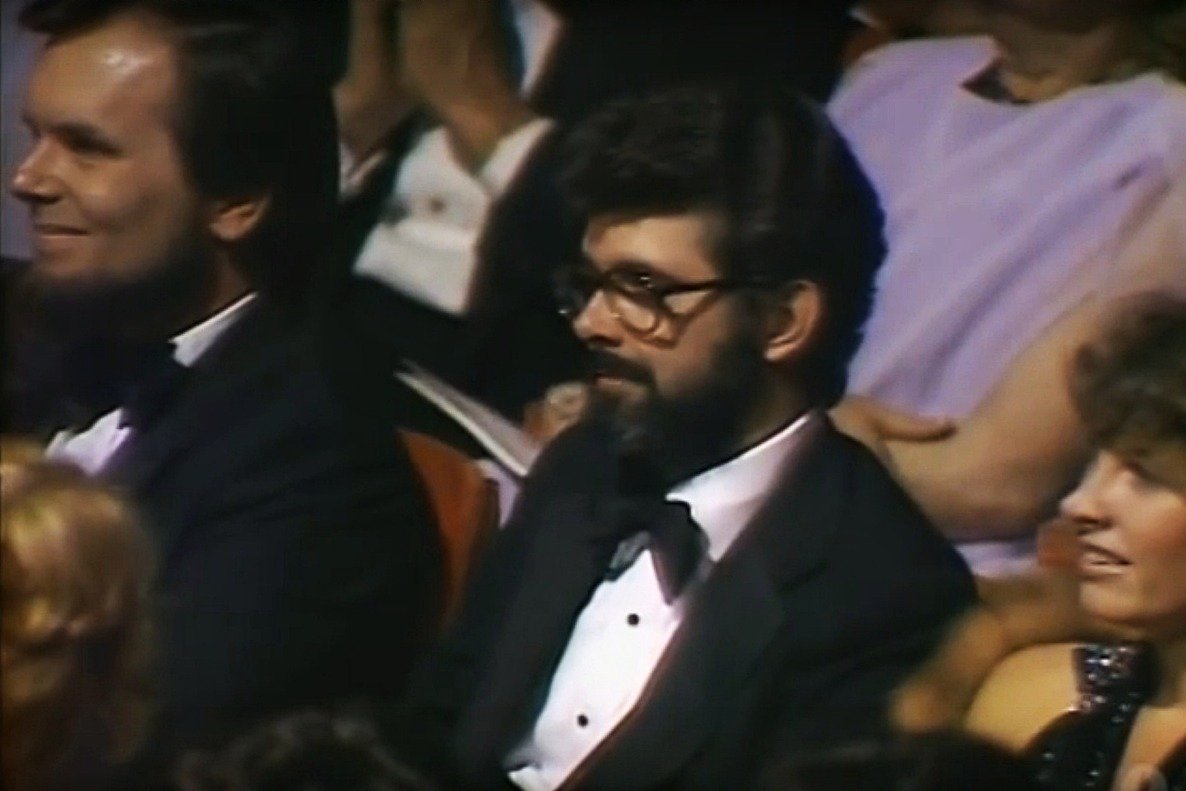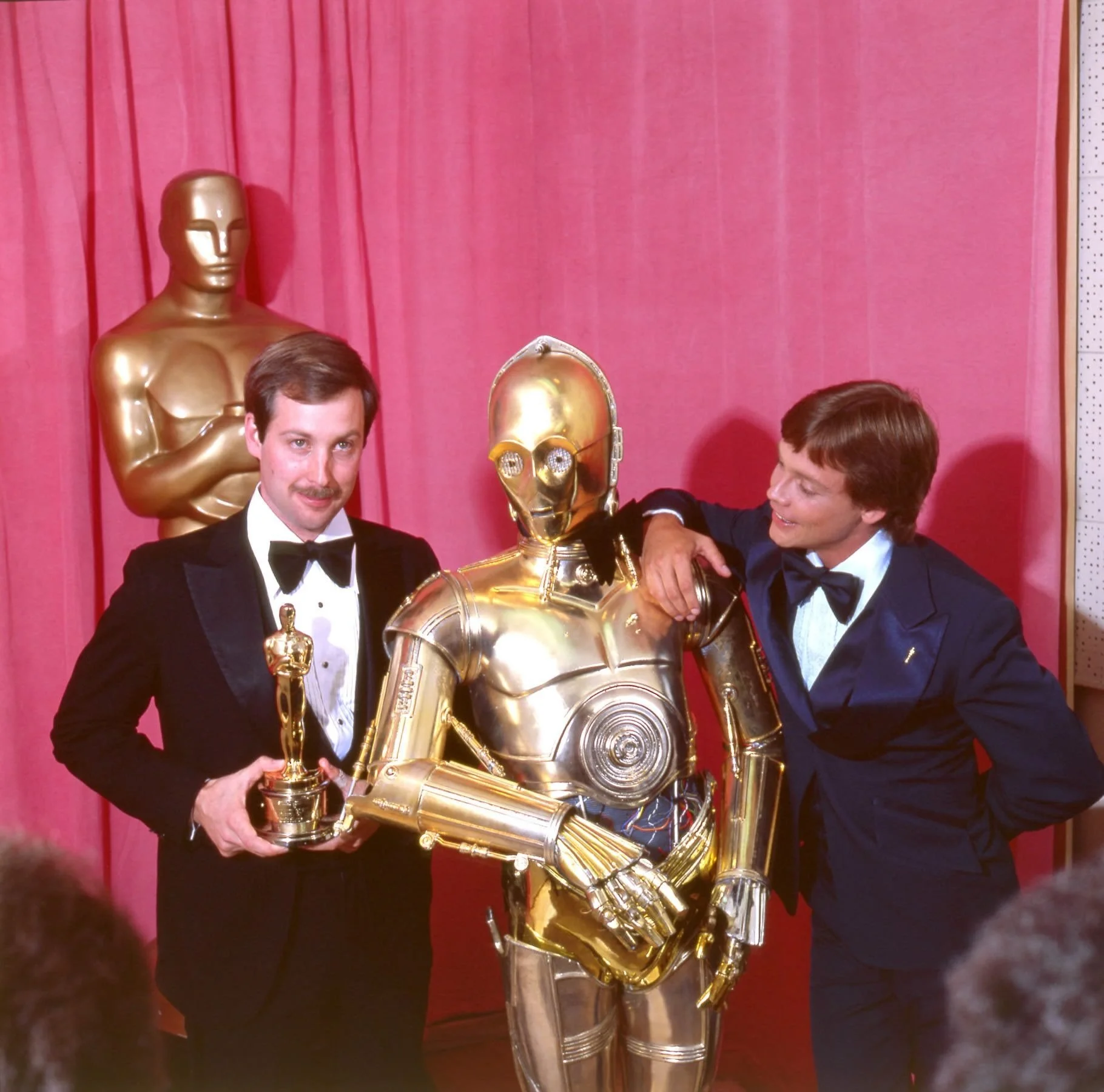How 'Star Wars' Lost At The Oscars
It is hard to imagine that Star Wars will turn 45 years in just a few weeks. When the movie finally hit the big screen on May 25, 1977, its creator George Lucas was exhausted physically and mentally. So, he flew to Hawaii with his pal Steven Spielberg, where they got the news about people standing in line around whole blocks to see the space opera. Again, and again, and again.
When Star Wars surpassed Jaws as the biggest box office hit of all time, Spielberg published the famous advertisement in Variety, where R2-D2 had caught the famous white shark.
RELATED:
The phenomenon that Star Wars had become during 1977 didn’t go unnoticed by the Academy of Motion Picture Arts and Sciences, and so when Oscar night came on April 3, 1978, the movie had earned 10 nominations. Still, this was only good enough for a bronze medal, as Julia (directed by Fred Zinnemann and starring Jane Fonda and Vanessa Redgrave) and The Turning Point (direct by Herbert Ross and with Anne Bancroft and Shirley MacLane as the leads) had both earned 11 nominations. At the end of the evening, Julia had won at least three awards, while The Turning Point hadn’t gotten even one – to this day, the movie with the most nominations and not a single win (together with The Color Purple).
Although nominated twice – for Best Director and Best Original Screenplay – George Lucas attended the ceremony as a plus-one for his then-wife Marcia, who was nominated for Best Editing.
After the obligatory opening song and dance number (performed by Carrie Fisher’s mother, Debbie Reynolds), the 50th Oscar ceremony began with a special award granted for Sound Effects, presented by Mark Hamill, C-3PO (with a bow-tie), and R2-D2. The award was given to Spielberg’s Close Encounters of the Third Kind and Star Wars (Ben Burtt).
The space opera also took home the Oscars for Visual Effects, Sound, Art Direction, Costume Design, Original Score, and Film Editing. But from that point onward, the Force was no longer with Star Wars. Many journalists and the public had expected that then 64-years old Alec Guinness would be awarded the Oscar for Best Actor in a Supporting Role. But Guinness, who didn’t attend the ceremony, lost to Jason Robards (Julia), who wasn’t present.
But it got even worse. George Lucas and Star Wars lost in all three main categories, Best Director, Best Original Screenplay, and Best Picture, to Woody Allen and Annie Hall.
Annie Hall was Allen’s fourth movie (his first being Take the Money and Run, 1969), and it tells the story of love and loss between Allen’s Alvy Singer, a comedy writer from New York, and his last ex-girlfriend Annie Hall, played by Diane Keaton, Allen’s real-life muse and then partner. The film includes some experimental techniques, like characters talking directly into the camera, split screens, subtitles explaining what the characters were really thinking, and an animated sequence where an animated Alvy Singer spoke to the animated Wicked Queen from Snow White.
Though Annie Hall only grossed around 38 million dollars at the box office (a fraction of what Star Wars made), it became the breakthrough film for Woody Allen and mainly received positive reviews. Roger Ebert said about Annie Hall in 2002 that it “contains more intellectual wit and cultural references than any other movie ever to win the Oscar for best picture, and in winning the award in 1977, it edged out Star Wars an outcome unthinkable today.”
It is not that unthinkable, as the Academy has generally tended to ignore big blockbuster movies or franchises for decades until they suddenly don’t, like the 11 awards (including Best Picture) for Return of the King proved in 2004.
And the Academy also tends to be rather indifferent to sequels (again, with seldom exceptions, like The Godfather Part II and the third Lord of the Rings film). So, in 1981 The Empire Strikes Back was nominated for only three awards (Best Sound, which it won, Original Score, and Art Direction) and got a Special Achievement for visual effect without competition. Three years later, Return of the Jedi won no competitive Oscars (despite 4 nominations) and just took home another Special Achievement award for visual effects.
To this date, this was the last Oscar win of any Star Wars movie. The whole prequel trilogy just earned 5 nominations without any wins.
The Force Awakens alone got 5 nominations (all in technical categories and for Original Score), The Last Jedi got 4, and The Rise of Skywalker was nominated three times.
There are arguments if Annie Hall rightfully beat out Star Wars at the Oscars in 1978. Both movies were groundbreaking for their time, but while Star Wars was for dreamers and escapists, Annie Hall appealed more to realists and people who had gone through difficult relationships themselves.
Those who think that the Academy made a big mistake in favoring Allen’s film above Lucas’ have a strong proponent in James Cameron, who quit his job as a truck driver after seeing Star Wars:
“This little cute relationship story and Star Wars. What the f*ck are you people thinking?”
READ NEXT:
Source(s): vulture, Yahoo! Entertainment, rogerebert.com, Indiewire







